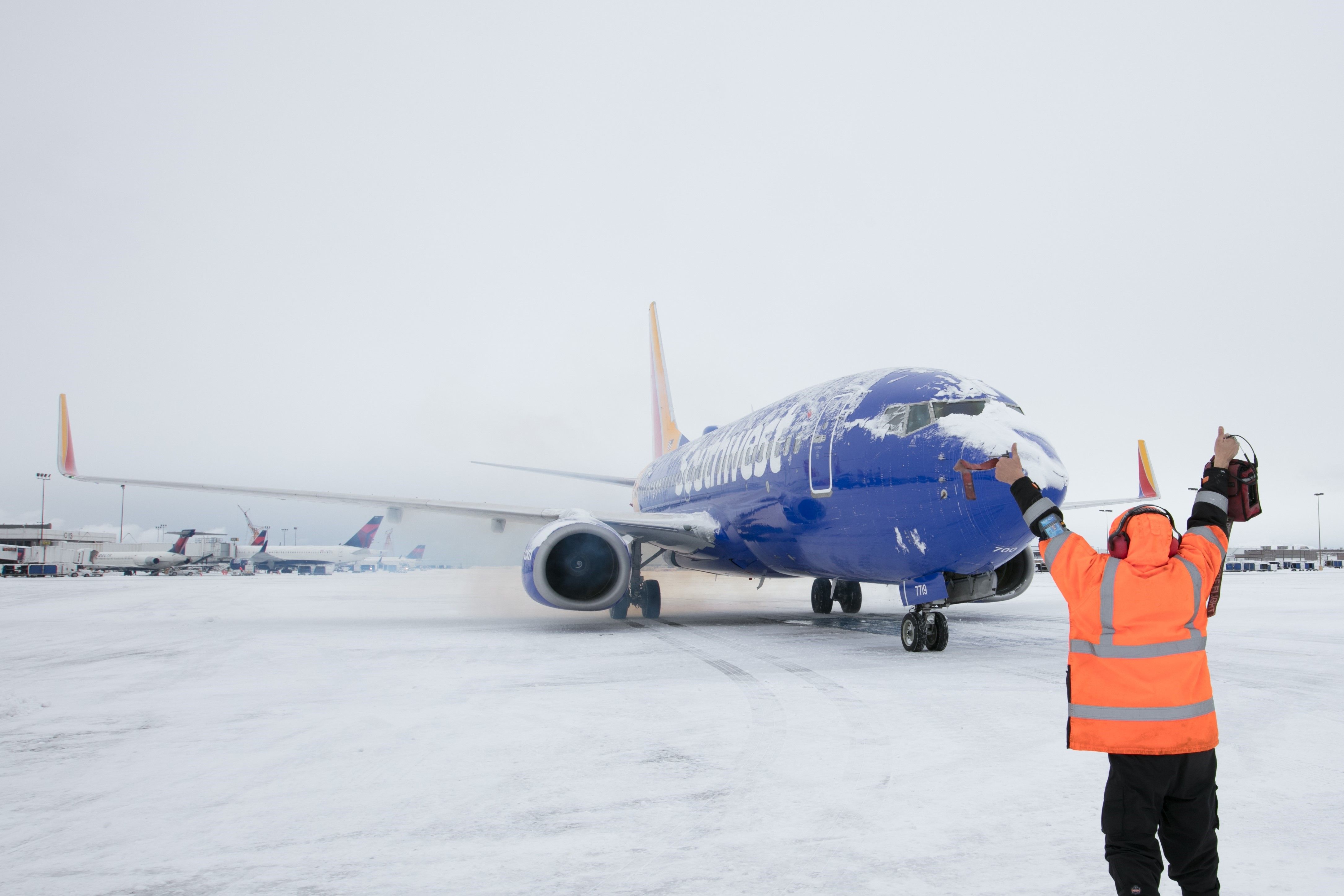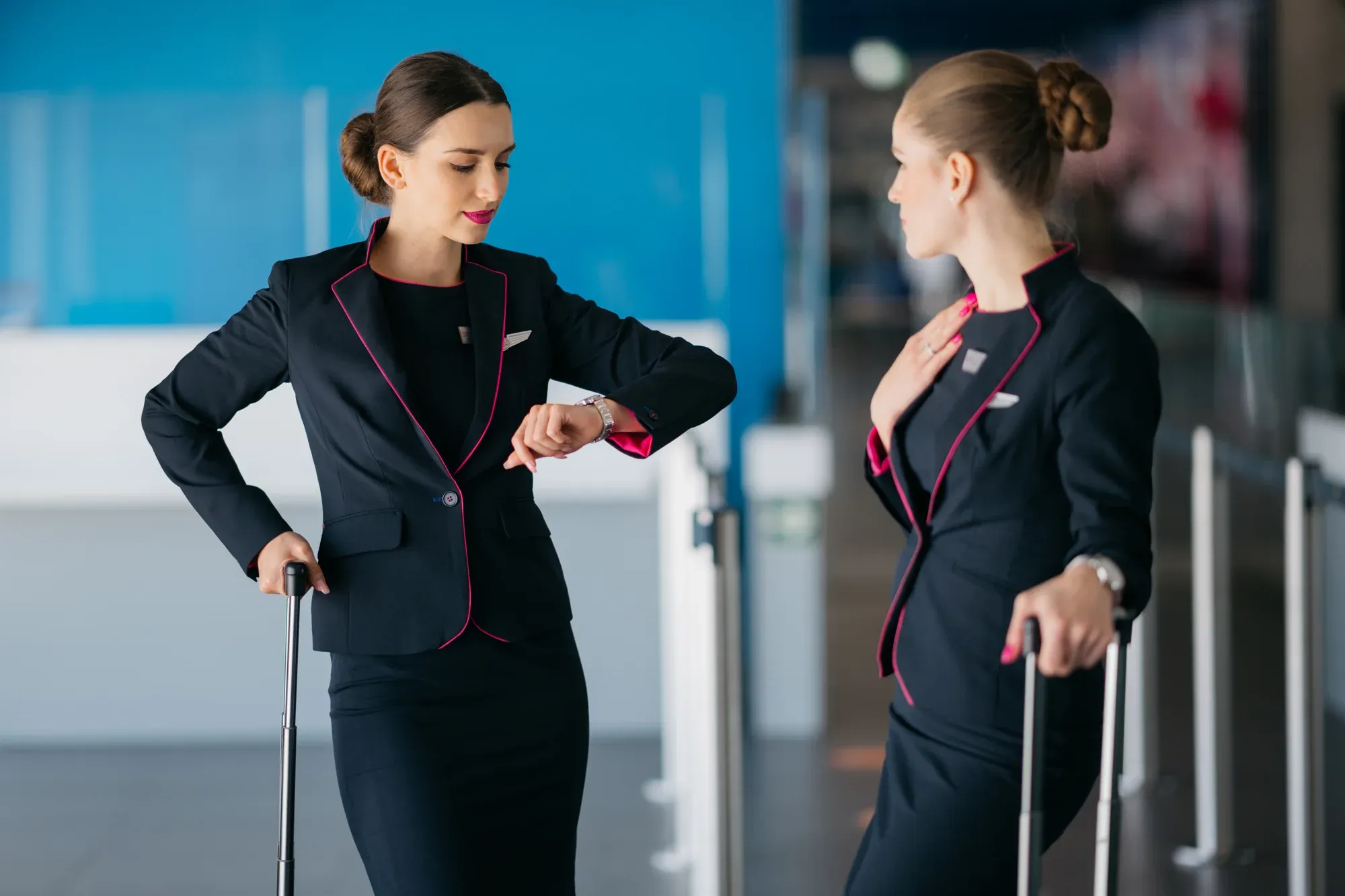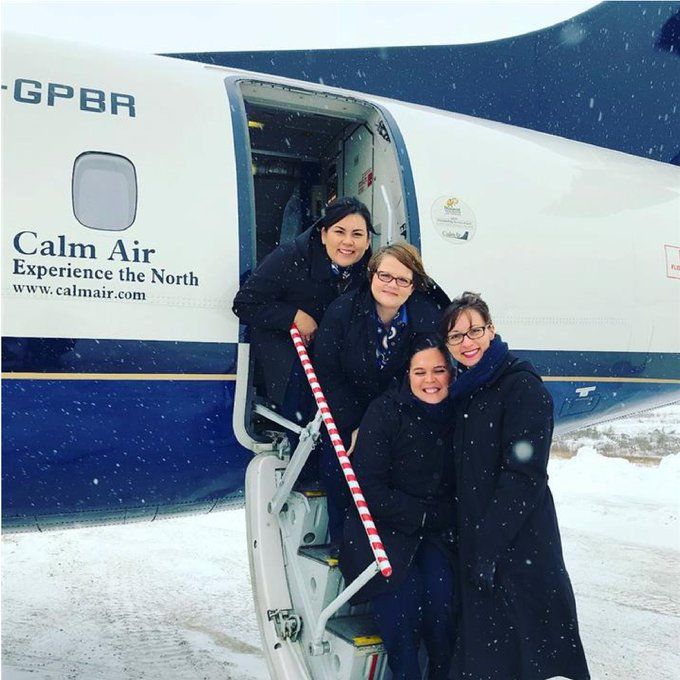Is there any extra cash to be made?
One would assume that if you work extra hours, you would get extra pay, but that’s not necessarily the case for flight attendants. It very much varies between airlines and even the part of the world you work in. Flights can be delayed or canceled for a number of reasons including weather, airport issues, staff strikes and shortages or technical problems with the aircraft.
Salary structure
There are a few different ways that flight attendant salaries work. Many airlines have a system of basic pay plus flying pay and there may be additional allowance for overnight stays and commission from onboard sales. The flying pay would be a small hourly figure that would be added to the basic salary. So, depending on the flight time or chocs to chocs or however the individual airline calculates its flight attendants working hours, would be added together at the month to the basic. Some low-cost airlines pay per trip, so instead of an hourly rate they will get per trip fixed amount, no matter where they go or how long the flight is.
Photo: Wizz Air
Delayed?
In these cases when there are delays, there is no overtime. You cannot leave a flight because it’s delayed, so the crew works as normal, whether it is 30 minutes or 5 hours delay. Duty periods can be extended by the airline and also by the captain, so it is possible to work 14 and a half hours of duty. A flight attendant will be paid their normal salary plus hours worked during the flight only. If it is a long delay, it may affect the next day’s working schedule, so that would be changed accordingly.
As a rule, we have flight time limitations, which means we can only work so many hours due to safety. So, a flight with an extra long delay may mean that we would start later the next day or be given the day off completely. If a flight is canceled at base, the crew will go on standby, ready for another flight. If a flight is canceled down-route, the crew wait to see when the flight is rescheduled.
Photo: Calm Air
Differences in the US
In the US, most airlines use the block time system from either door opening to door closing, or from pushback to arriving on the stand. The salary is then paid at an hourly rate depending on how long the flight attendant has been with the airline. So, the hours logged are those paid. It has always been a mark of contention, that flight attendants are not paid for pre-flight and post-flight duties. This year, Delta Air Lines agreed to pay for the boarding time too, which adds to the salary. Being heavily unionized, the airlines have to negotiate the pay structure for flight attendants.
However, some US airlines do offer extra flights (not at an overtime rate) to their flight attendants, enabling them to increase their salary. Overtime doesn’t exist per se but extra work can be picked up as long as it is within the flight time limitations. Delays would be paid at the normal hourly rate, unless in exceptional circumstances, where they may be offered a bonus from the airline. If a flight is canceled, the crew can be moved to another flight or put on standby. Everything is very much down to the individual airline.
Just another day
Luckily, long delays due to weather are quite rare and for flight attendants, it’s just part of the schedule, even if they don’t get overtime. Interestingly, in post-pandemic times with shortages of crew and lower salaries, some UK and European airlines have offered extra payments to flight attendants in order for them to work extra flights. This was a short-term measure to stop airlines having to cancel flights but certainly not the norm. But a weather related delay, it’s just another day.
[ad_2]
Source link





